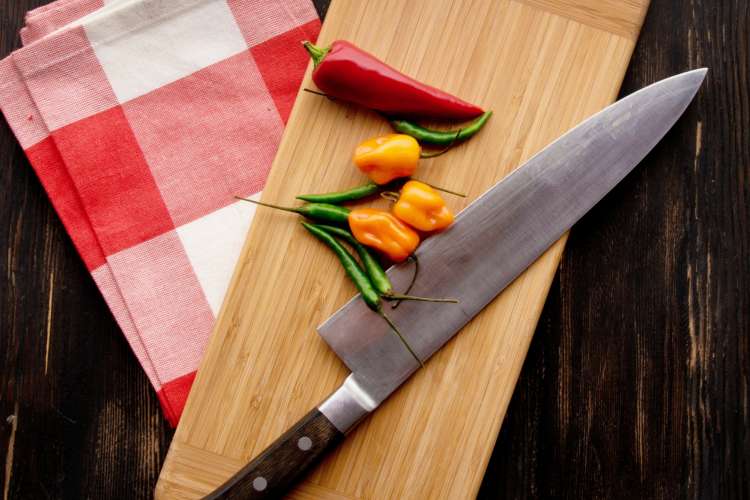In the fast-paced environment of professional kitchens, having reliable tools is essential to successful culinary endeavors. Among these, the German knife is particularly favored for its outstanding craftsmanship and performance. Nonetheless, even top-quality knives necessitate consistent upkeep to ensure they remain sharp and continue to perform well over time. A thorough understanding of the German knife maintenance routine is vital for any kitchen expert aiming to preserve the integrity of their blades.

The Appeal of German Knives in the Kitchen
German knives are celebrated for their strength, precision, and adaptability. Made from high-carbon stainless steel, they strike an ideal balance between resilience and sharpness. This makes them perfect for a range of cooking tasks, from dicing vegetables to carving meats. To gain insights into how German knives compare with their Japanese counterparts, check out this comparison.
Daily Upkeep: The Cornerstone of Care
Daily care forms the foundation of any effective German knife maintenance routine. After each use, it's crucial to clean the knife using warm soapy water, followed by drying it right away with a soft cloth. Avoid putting your knife in the dishwasher; the harsh detergents and high heat can compromise the blade's integrity. Regular honing is also recommended to maintain sharpness. Implementing this straightforward daily practice can significantly prolong your knife's lifespan.
Weekly Sharpening Best Practices
While honing serves to realign the knife's edge, sharpening removes material to restore its cutting ability. Depending on usage frequency, your German knife might need sharpening every week. Professionals often prefer using a whetstone, as it offers precise control. Make sure to familiarize yourself with the correct angle and technique to protect against blade damage. For additional details on sharpening, check out this guide.
A Monthly Routine for Deep Cleaning and Inspection
As part of your monthly maintenance, conduct a detailed cleaning and inspection of your knife. Look over the blade for rust or any damage. Should you find rust spots, carefully remove them using a non-abrasive cleaner. Applying mineral oil can aid in rust prevention. Also, inspect the handle for cracks or loose rivets. Addressing these concerns promptly ensures both the safety and performance of your knife.
Optimal Storage for Lasting Quality
Proper storage is often underestimated but is crucial in the German knife maintenance routine. Storing knives in a block or on a magnetic strip helps to avert unintended damage to the blade. Ensure the storage area is clean and dry to further shield your knife from moisture and corrosion. For more tips on knife cleaning, visit this article.
Knife Anatomy: Enhancing Care Understanding
Knowing the anatomy of your knife can improve your maintenance strategies. Each component, including the blade, bolster, tang, and handle, requires specific attention. While the blade is the primary focal point of maintenance, its equally important to care for the handle to ensure it remains secure and comfortable to grip, which is essential for accurate and safe kitchen work.
Avoiding Common Pitfalls
Even experienced chefs can accidentally harm their knives. Frequent mistakes include using inappropriate cutting surfaces, such as glass or granite, which can dull the blade. Additionally, employing a knife for unintended tasks, such as opening cans, can inflict permanent damage. Being aware of these missteps and taking steps to avoid them is critical for maintaining your knives effectively.

Frequently Asked Questions about German Knife Maintenance
How frequently should I sharpen my German knife?
The sharpening frequency is dependent on how often you use the knife. For professional chefs, sharpening weekly is advisable to keep optimal performance.
Is it okay to use honing steel on a German knife?
Absolutely! Honing steels are great for aligning the edge of a German knife, helping to keep it sharp in between sharpening sessions.
What's the best way to store my German knives?
Its best to store knives in a block or on a magnetic strip, as this prevents the blades from coming into contact with other tools that could dull or damage them.
For further insights into the exceptional craftsmanship and legacy of German knives, delve into the rich history of Solingenrecognized as the knife-making capital of the world in this article. Also, check out our vegetable knife guide for more relevant tips and tricks.


























